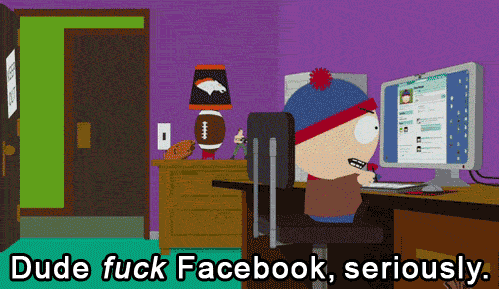1) “Where activists were once defined by their causes, they are now defined by their tools.”
Yes, of course. It’s not like we call them “picketers” because they use sticks for their signs.
2) “Innovators tend to be solipsists. They often want to cram every stray fact and experience into their new model.”

… and you sir tend to be a lexicomane. Excuse us while we save the world.
3) “Fifty years after one of the most extraordinary episodes of social upheaval in American history, we seem to have forgotten what activism is.”
#blacklivesmatter, because that is happening right now
4) “What mattered more was an applicant’s degree of personal connection to the civil-rights movement.”
Knowing someone affected is often critical. Father’s often become feminists when they have daughters! (http://thestir.cafemom.com/baby/132384/men_who_have_baby_girls)
5) “The kind of activism associated with social media isn’t like this at all.” [This being, are you chicken or not, backing because of peer support]

6) “The platforms of social media are built around weak ties.”
“But weak ties seldom lead to high-risk activism.”

Ramsey Orta was the filmer of the Eric Garner murder. He made the decision to film the arrest; which was high risk because he later found himself arrested by the police. While Orta had strong ties to Garner, video has a way of creating strong ties because it is a very expressive platform. Oftentimes, the filmer does not have strong ties and may just be a passer by, but is willing to engage because video is strong evidence.
7) “By not asking too much of them. That’s the only way you can get someone you don’t really know to do something on your behalf.”

Right. Because people don’t give to charity and things like that. Sometimes people are willing to do a lot; for a lot of people. Does philanthropy do nothing?
8) “it’s the kind of commitment that will bring only social acknowledgment and praise.”
Tell that to 4chan and reddit! They often engage in activism which brings a lot of scorn!
9) “The evangelists of social media don’t understand this distinction; they seem to believe that a Facebook friend is the same as a real friend and that signing up for a donor registry in Silicon Valley today is activism in the same sense as sitting at a segregated lunch counter in Greensboro in 1960.”
“We are a long way from the lunch counters of Greensboro.”
As a programmer, I probably spend more time on the internet than I do in cafes… so if the internet is the place where people are spending time, what’s wrong with that being an unsegregated place? If people are spending more time in fora where they are free to be who they want to be; what’s the wrong. Who needs lunch?
10) “The civil-rights movement was high-risk activism.”
But it was also high reward.
11) “Facebook and the like are tools for building networks, which are the opposite, in structure and character, of hierarchies.”

This seems fair. The main units of organization are pages, groups, and events. None have a layered permission scheme, most likely because it is too complicated for most users. This seems not really fundamental to the technology though; perhaps things like DemocracyOS can change this!
12) “There are many things, though, that networks don’t do well. Car companies sensibly use a network to organize their hundreds of suppliers, but not to design their cars. No one believes that the articulation of a coherent design philosophy is best handled by a sprawling, leaderless organizational system. Because networks don’t have a centralized leadership structure and clear lines of authority, they have real difficulty reaching consensus and setting goals. They can’t think strategically; they are chronically prone to conflict and error. How do you make difficult choices about tactics or strategy or philosophical direction when everyone has an equal say?”

Not everyone needs an equal say in a meritocracy — your voice is louder if your opinion is correct. International Telegraph and Telephone Consultative Committee didn’t do so great with the internet, but TCP/IP seems to be doing well! It was very much designed by network as opposed to central leaders; that’s why it is so great; it meets the needs of lots of users!
13) “Similarly, Al Qaeda was most dangerous when it was a unified hierarchy. Now that it has dissipated into a network, it has proved far less effective.”

I think this is just wrong. Al Qaeda, like all terrorist organizations used decentralized cells to isolate groups… central control wasn’t that important, decentralization made it more of a hydra than anything.






